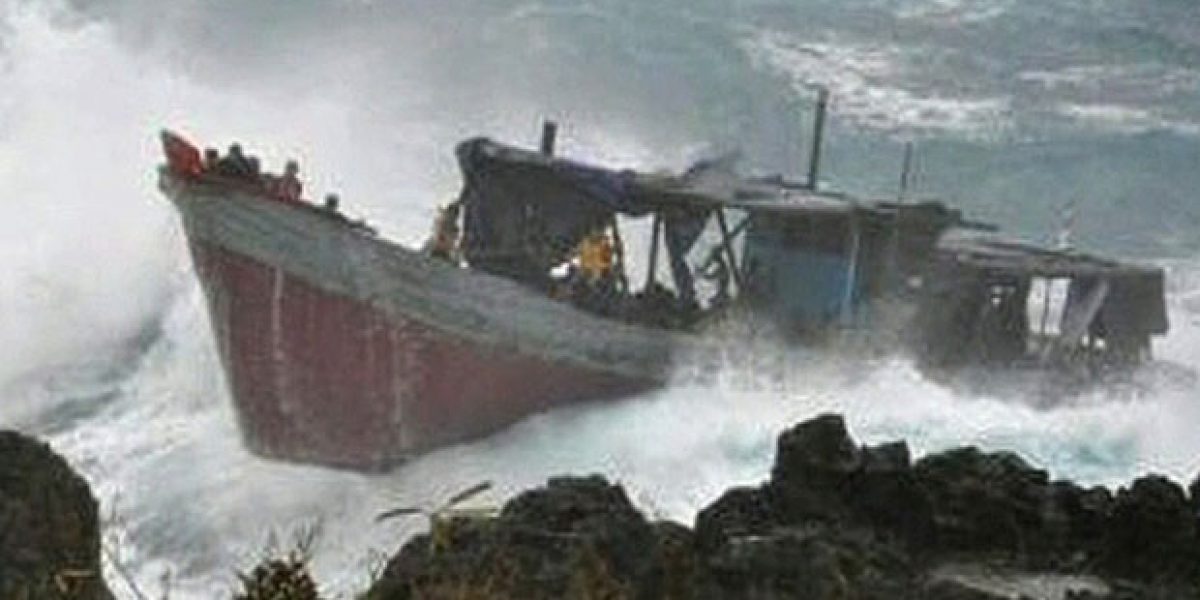Australia: Labor worse than Howard on asylum seekers
02 June 2011|Andrew Hamilton

Sydney, 02 June 2011 – The design of the Labor Government policy on asylum seekers is now clear. Its overriding aim is to stop asylum seekers coming to Australia by boat. The regional solution is not a solution for the problems faced by refugees but for an Australian political problem. The despatch to Malaysia and Manus Island of people who arrive by boat is about deterrence.
This development was probably inevitable from the day before the last election when Prime Minister Gillard adumbrated a regional solution focused on East Timor that would ensure asylum seekers would be processed overseas. The lure of a regional agreement muted the criticism of many people working with asylum seekers. It became easy to overlook the ethical implications of the promise.
Those implications are also now clear. Effectively, Australia is excluding from the right to claim protection a group of people who flee to Australia to escape persecution. Instead it will condemn them to treatment that amounts to an abuse of their human dignity. The mental illness developed by those on PNG and the hopelessness of existence in Malaysia, with its attendant cruelties, will deter others from trying to come to Australia by boat. Human beings are being punished in order to achieve broader policy goals.
This should lead people concerned for asylum seekers to reflect on how we have come to this and what we can learn from it.
The promise of the Government to negotiate with Malaysia conditions that respect and monitor the human rights of asylum seekers is a see-through fig leaf. From the Australian perspective the asylum seekers will be in the same position as other asylum seekers in Malaysia, unable to claim protection. From the Malaysian perspective they are items traded by Australia — why should it be more concerned for their humanity than Australia has been?
In its treatment of asylum seekers the Labor Government has not only returned to the worse features of the Howard Government. It has gone beyond it in betraying the central principle underlying any ethical refugee policy, namely that asylum seekers should not be sent to places where there is no guarantee that they will not face persecution.
One can only imagine what the Coalition Government that will most likely follow the next election will build on this abrogation of principle.
These latest developments also invite reflection how refugee advocates and their agencies should deal with government. The coloured wrapping on the rotten apple of refugee policy can distract us from focusing on what really matters. In this case, it is naturally attractive to be part of designing a regional solution that would improve the ultimate lot of refugees, with all the intellectual excitement and closeness to government that goes with it.
Well-designed regional agreements are certainly desirable and are worth contributing to. But the fact that the Government’s support for a regional agreement has always been about preventing asylum seekers from claiming asylum in Australia should temper enthusiasm for it.
Ultimately, for those concerned for asylum seekers, one thing matters in relationships with government, and one only. That is the welfare and human dignity of the actual human beings who are asylum seekers.
The preservation of Christmas Island as the primary processing centre, the failure to pass adumbrated legislation that improved the treatment of asylum seekers, their continued routine detention, the suspension of processing, the renewed detention of minors, the carting around Australia without notice of asylum seekers and the establishment of centres in remote parts of Australia, have all been inconsistent with respect for human dignity.
Those who speak for refugees need publicly and uncompromisingly to insist that the policy and the diminishment of vulnerable people that follows from it are unacceptable. They should also insist that the goals of such a policy not dominate the shape of regional agreements.
To focus on what matters is never easy. It is the more difficult in a field on which you will never make a lasting difference. Those who want asylum seekers in Australia to be treated justly and humanely will have small victories and huge defeats. A few boats will bring down whatever small gains have been made with great labour towards a humane and reasonable policy.
Asylum seekers are familiar with failure and misrepresentation throughout their lives. Their friends will experience the same things. Commitment must be for the long haul.
By Andrew Hamilton, worked for JRS in the 1990’s and is a consulting editor of Eureka Street.
This article was first publish in Eureka Street May 2011.


